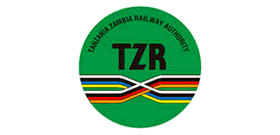 TAZARA Train Suspensions: Navigating the Impact and Exploring Alternatives
TAZARA Train Suspensions: Navigating the Impact and Exploring Alternatives
The Tanzania-Zambia Railway Authority (TAZARA) has announced the temporary suspension of its Mukuba and Udzungwa passenger train services, impacting travel between Kapiri Mposhi and Nakonde, and Kidatu and Makambako, respectively. This disruption, attributed to technical challenges, presents immediate concerns for travel agents operating in the region.
This suspension comes as a setback for a railway system steeped in history. Built in the 1970s with Chinese support, TAZARA has long served as a vital trade and transport artery connecting Tanzania and Zambia. The Mukuba line, named after Zambia's famed copper exports, has been a key route for both goods and passengers, contributing significantly to the regional economy. The Udzungwa line, primarily serving local communities within Tanzania, plays a crucial role in connecting smaller towns and facilitating regional mobility.
The current suspension echoes previous disruptions in TAZARA's operational history. In December 2024, multiple track closures led to a 13-day suspension of several passenger services. Earlier that year, a more extensive 50-day suspension underscored the ongoing challenges in maintaining the aging infrastructure. The railway has also faced operational adjustments due to external factors, such as the COVID-19 pandemic, which saw cross-border services temporarily halted.
The economic ramifications of these suspensions are substantial. The Mukuba line, with its twice-weekly service, carries an estimated average of 600 passengers per trip. The Udzungwa line, operating on a similar schedule, transports around 400 passengers. With average ticket prices estimated at US\$25 for the Mukuba line and US\$15 for the Udzungwa line, the combined weekly revenue loss for TAZARA reaches approximately US\$42,000. This translates to a significant monthly impact of around US\$168,000, a figure that underscores the financial strain these disruptions place on the railway authority.
Beyond the financial implications for TAZARA, the suspension poses immediate challenges for travelers and the communities that rely on these rail services. Travel agents will need to swiftly adapt, guiding their clients towards alternative transportation options. Bus services are the most viable alternative for both routes. The journey between Kapiri Mposhi and Nakonde by bus takes approximately 12 hours, while bus routes between Kidatu and Makambako are also available, though journey times may vary. Travel agents should be prepared to advise on these alternatives, factoring in increased travel times and potential cost differences.
The increased reliance on bus services will likely lead to higher transportation costs for passengers. The estimated cost of alternative bus travel is US\$35 for the Mukuba route and US\$20 for the Udzungwa route. This price difference, combined with the potential need for connecting taxi services to reach bus terminals, adds to the financial burden on travelers. Travel agents should proactively communicate these cost implications to their clients and explore options to mitigate the added expense.
The suspension also raises concerns about passenger safety and comfort. Train travel is often preferred for its perceived safety and relative comfort, particularly for long journeys. The shift to bus travel may introduce concerns about road safety and the potential for less comfortable travel conditions. Travel agents should address these concerns with their clients, providing reassurances where possible and offering advice on selecting reputable bus operators.
The impact extends beyond individual travelers, affecting local communities that depend on the railway for their livelihoods. Businesses operating near train stations, including vendors and small shops, will likely experience a decline in customers. The reduced accessibility to remote areas served by the railway could also disrupt the flow of goods and services, potentially leading to shortages and price increases. The temporary job insecurity faced by TAZARA employees further compounds the economic strain on these communities.
While TAZARA works to address the technical issues and restore train services, travel agents play a crucial role in navigating this disruption. By staying informed about the situation, proactively communicating with clients, and offering viable alternative travel arrangements, agents can mitigate the negative impact on travelers and contribute to a smoother transition during this period of suspended rail services. The focus should be on providing clear, accurate information, managing client expectations, and ensuring the continued flow of travel within the region, even amidst these temporary challenges.
